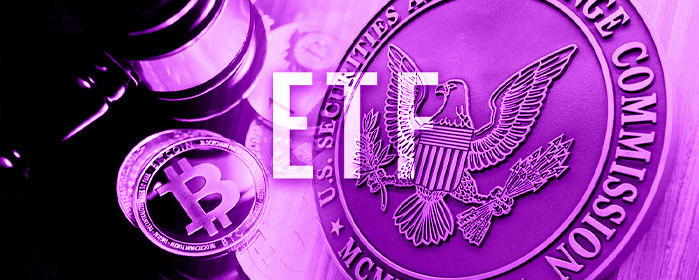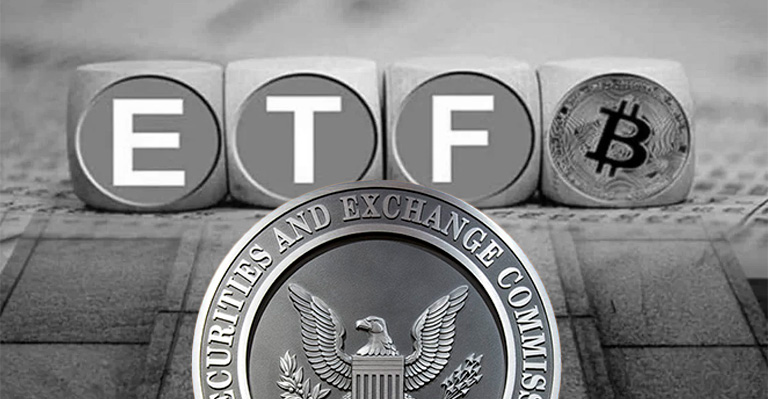The U.S. Securities and Exchange Commission (SEC) has recently accepted several applications for spot Bitcoin exchange-traded funds (ETFs), signaling a possible breakthrough for the crypto industry. A spot Bitcoin ETF is a fund that tracks the price of Bitcoin directly, rather than through futures contracts or other derivatives.
This could offer investors a simpler and more cost-effective way to gain exposure to the leading cryptocurrency.
Among the applicants are some of the biggest names in the asset management industry, such as BlackRock, Fidelity, VanEck, WisdomTree, and Invesco Galaxy. BlackRock, the world’s largest asset manager with over $9.4 trillion in assets, has added a “surveillance-sharing” agreement with Coinbase, the largest U.S. crypto exchange, to its updated application.
This is meant to address the SEC’s concerns about market manipulation and fraud in the crypto space.
Bitcoin ETFs are Still Pending for Approval
The SEC has not approved any spot Bitcoin ETFs yet, but it has started the official review process for these proposals. This means that the regulator will have to either approve or reject them within a certain period, usually 45 days, which can be extended up to 240 days.
The SEC has already approved several Bitcoin futures ETFs, which are based on contracts that bet on the future price of Bitcoin, rather than the actual spot price.

The approval of spot Bitcoin ETFs could have significant implications for the crypto market, as it could attract more institutional and retail investors, increase liquidity and transparency, and reduce volatility and premiums. It could also boost the adoption and innovation of Bitcoin and other cryptocurrencies, as well as foster more regulatory clarity and legitimacy.
However, there are also some challenges and risks involved in launching spot Bitcoin ETFs. For instance, there are still unresolved issues regarding the custody, valuation, and taxation of Bitcoin, as well as the potential impact of hacking, theft, and cyberattacks on the crypto ecosystem.
Moreover, there are also some uncertainties about how the SEC will interpret and apply its existing rules and regulations to this new asset class.
Therefore, investors should be cautious and well-informed before investing in any spot Bitcoin ETFs, as they may entail higher costs, risks, and complexities than traditional ETFs. They should also be aware of the differences between spot and futures Bitcoin ETFs, as well as the advantages and disadvantages of each type.
Finally, they should also monitor the developments and updates from the SEC and other regulators regarding this emerging sector.

